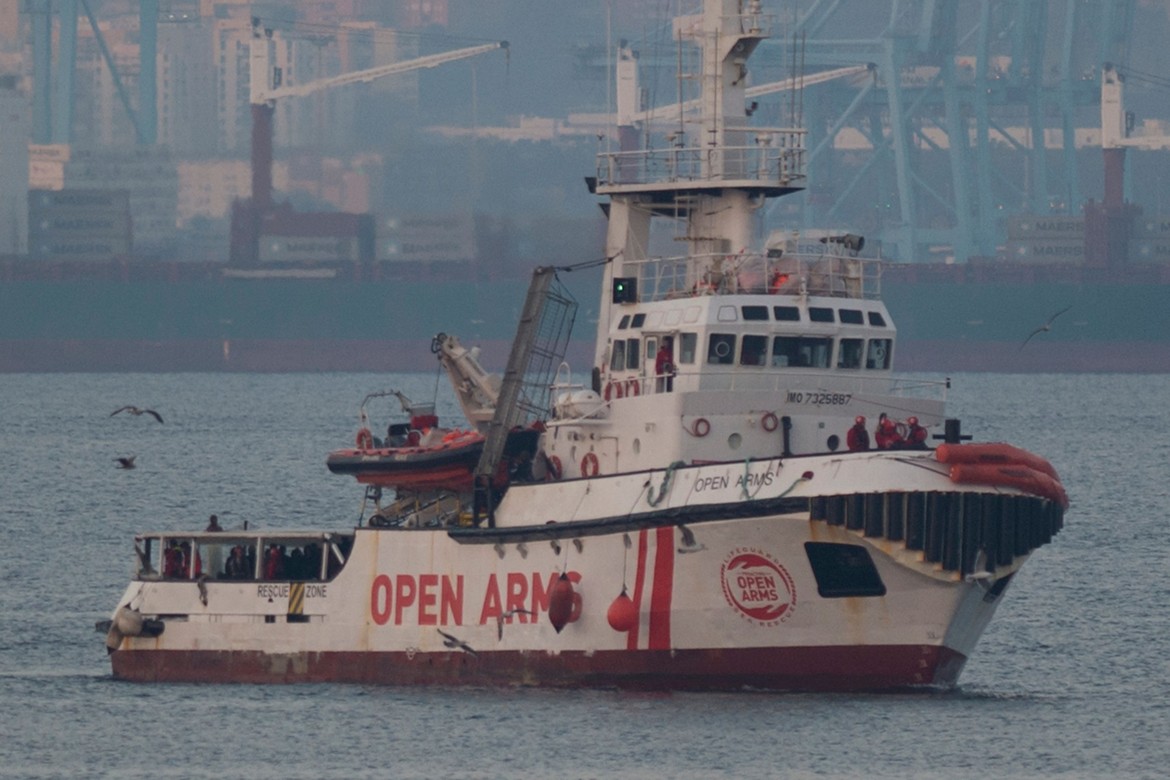Report
Open Arms gets go-ahead from Madrid, but barred from rescue missions
The NGO is defiant: ‘For our part, we will continue to do what we have always done, namely respect the international conventions and maritime law.’

After being blocked in the port of Barcelona for over two months, the ship belonging to the Proactiva Open Arms NGO was finally authorized to leave on Wednesday. However, this is no sign of Easter goodwill here: the government added a set of severe restrictions to the document authorizing the ship to leave Spanish territorial waters. These include a prohibition on making any intermediate stops before its intended destination—the Greek islands of Lesbos and Samos that house migrant detention centers and where the ship is set to deliver 20 tons of humanitarian aid—and also, most prominently, a blanket ban on carrying out any search and rescue missions for migrant boats. What’s more, if the ship enters the Libyan SAR area at all, it risks incurring a fine of between €300,000 and €900,000.
“In this way, the Spanish government are denying us the possibility of helping the hundreds of people that are fleeing violence and war in Libya, particularly these days,” the Spanish NGO said in a press statement. “We do not consider it acceptable to be forced to negotiate regarding the lives of men, women and children. … For our part, we will continue to do what we have always done, namely respect the international conventions and maritime law.”
The NGO was founded in 2015, as thousands of refugees fleeing from Syria were trying to reach Europe by boat along the eastern Aegean route. Since then, the NGO has rescued almost 60,000 people. Most recently, just a few hours before Christmas last year, it rescued 311 people in international waters off Libya, including 139 children, the youngest just 48 hours old. Back then, Malta and Italy both denied the ship a safe port, and it was forced to travel for five days to reach Algeciras, in the southern corner of the Iberian Peninsula.
However, the welcoming attitude of the Spanish government led by Pedro Sánchez’s PSoE lasted for no more than two weeks. On Jan. 14, the Barcelona port authorities, under the jurisdiction of the Ministry of Development, denied the ship permission to leave. The refusal was based on an astonishing argument: namely that, if the Italian and Maltese governments would again prevent the ship from landing if it was carrying rescued migrants, the Open Arms would have to remain at sea for many days with a human cargo that exceeds its capacity, in which case it would be breaking the law. This tortuous bit of logic, a technicality serving as a surreal pretext, implicitly admits something that is obvious to everyone: hundreds of people are currently fleeing Libya, and there is no one to come to their aid at sea.
“After our last rescue mission, the Spanish Government has decided to line up behind what is happening elsewhere in Europe,” Veronica Alfonsi, the head of the Italian branch of Open Arms, told us. “Beside the European elections, the Spanish national elections are coming up, and the government doesn’t want to fuel a public discussion on a controversial issue such as immigration.”
On Wednesday, the Aita Mari, a fishing boat converted to a rescue ship by the Proem-Aid and Salvamento Marítimo Humanitario NGOs, a project that received €400,000 in funding from the Basque Government, was also finally allowed to leave port. Like the Open Arms, this vessel is also leaving for the Greek islands of Lesbos and Samos, where refugees, fenced in by European regulations, are surviving in inhuman conditions that are close to amounting to a humanitarian crisis. This situation has persisted for four years, and the Syriza-led Greek government is showing no signs that it wants to improve it.
“The dynamic is exactly the same for the various European governments. Italy is making more noise about it, but Spain is following the same line,” said Riccardo Gatti, the head of Open Arms. “Not only do they not want us to rescue people, but they are also trying to keep us from denouncing what is happening in the central Mediterranean. With an ongoing conflict, the risks involved in trying to flee Libya are very serious. The decisions of these governments mean that, if these people manage to leave Libya, they will die at sea; otherwise, they will just disappear inside the detention centers.”
Originally published at https://ilmanifesto.it/open-arms-via-libera-da-madrid-ma-non-puo-effettuare-salvataggi-2/ on 2019-04-18
